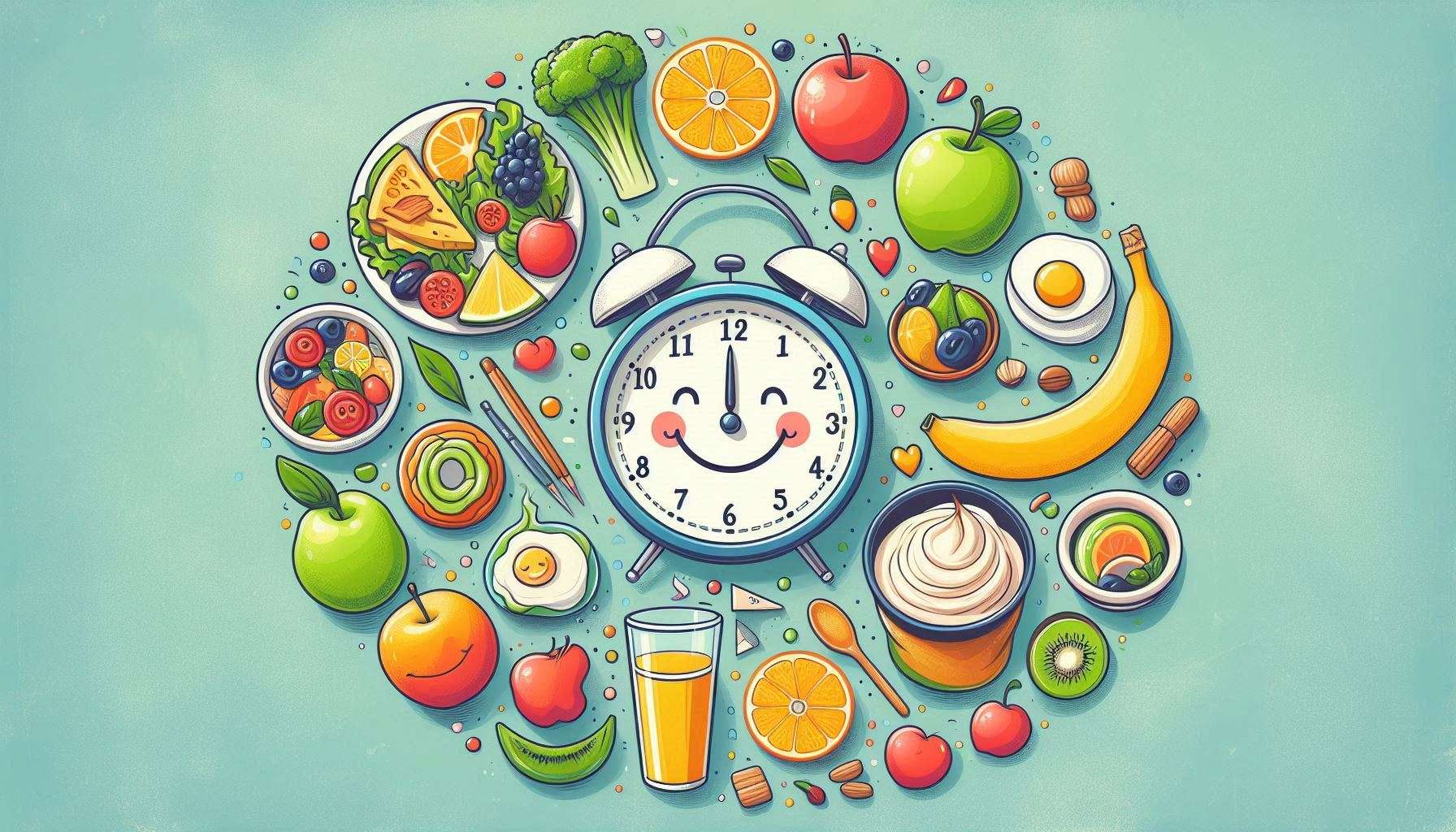
Incorporating healthy habits into your daily routine can lead to a significant improvement in your physical and mental well-being, ultimately enhancing your overall quality of life. These habits not only reduce the risk of chronic diseases but also boost mood, energy levels, and self-esteem. By developing a positive body image and optimistic outlook, you can transform your life for the better, fostering a happier and healthier you.
Introduction to a happier, healthier lifestyle begins with adopting healthy habits that promote overall well-being. By incorporating the right habits into your daily routine, you can experience a significant improvement in your physical and mental health, leading to a more fulfilling life. In this article, we will explore the 8 healthy habits to adopt for a happier, healthier you, providing you with a comprehensive guide to transform your life for the better.
A healthy lifestyle is not just about physical health; it also encompasses mental and emotional well-being. By adopting healthy habits, you can reduce the risk of chronic diseases, improve your mood, and increase your energy levels. Moreover, healthy habits can help you develop a positive body image, enhance your self-esteem, and cultivate a more optimistic outlook on life. Whether you’re looking to lose weight, improve your relationships, or simply feel more confident, incorporating healthy habits into your daily routine can have a profound impact on your overall quality of life.
Building a Foundation for Healthy Habits
Building a foundation for healthy habits requires a combination of physical activity, healthy eating, and stress management. Regular exercise, such as walking, running, or yoga, can help improve your cardiovascular health, boost your mood, and increase your energy levels. Additionally, eating a balanced diet that includes plenty of fruits, vegetables, whole grains, and lean proteins can provide your body with the necessary nutrients to function optimally. Stress management techniques, such as meditation, deep breathing, or journaling, can help you cope with the demands of daily life, reduce anxiety, and promote relaxation.
Incorporating physical activity into your daily routine can be as simple as taking a short walk during your lunch break or doing a few jumping jacks during commercial breaks while watching TV. You can also try more structured activities, such as joining a gym, taking a fitness class, or working with a personal trainer. Healthy eating can be achieved by meal planning, grocery shopping, and preparing healthy meals in advance. You can also try cooking at home using fresh ingredients, avoiding processed foods, and limiting your intake of sugary drinks and snacks. By combining physical activity, healthy eating, and stress management, you can build a strong foundation for healthy habits that will serve you well throughout your life.
Hydration and Sleep: The Cornerstones of Good Health
Hydration and sleep are two of the most essential components of good health, and they play a critical role in maintaining a healthy lifestyle. Drinking plenty of water throughout the day can help flush out toxins, regulate body temperature, and maintain healthy skin, hair, and nails. Aim to drink at least eight glasses of water per day, and avoid sugary drinks and caffeine, which can have a dehydrating effect. Sleep, on the other hand, is essential for physical and mental restoration, and it plays a critical role in memory consolidation, learning, and emotional regulation. Aim for 7-9 hours of sleep per night, and establish a consistent sleep schedule to help regulate your body’s internal clock.
In addition to drinking plenty of water and getting enough sleep, there are several other habits you can adopt to promote hydration and sleep. For example, you can try drinking a glass of water as soon as you wake up, or keeping a water bottle with you throughout the day. You can also try establishing a bedtime routine, such as reading a book, taking a warm bath, or practicing relaxation techniques, to help signal to your body that it’s time to sleep. By prioritizing hydration and sleep, you can help maintain a healthy lifestyle, improve your physical and mental health, and increase your overall sense of well-being.
Nutrition and Meal Planning: The Key to a Healthy Diet
Nutrition and meal planning are essential components of a healthy lifestyle, and they play a critical role in maintaining a healthy weight, reducing the risk of chronic diseases, and promoting overall well-being. Eating a balanced diet that includes plenty of fruits, vegetables, whole grains, and lean proteins can provide your body with the necessary nutrients to function optimally. Meal planning can help you stay on track, ensure that you’re getting the nutrients you need, and save time and money. By planning your meals in advance, you can avoid unhealthy fast food, reduce food waste, and cook healthy meals at home using fresh ingredients.
In addition to meal planning, there are several other habits you can adopt to promote healthy eating. For example, you can try keeping a food diary, tracking your nutrient intake, and limiting your consumption of processed foods, sugary drinks, and saturated fats. You can also try cooking at home using fresh ingredients, experimenting with new recipes, and exploring different cuisines. By prioritizing nutrition and meal planning, you can help maintain a healthy lifestyle, improve your physical and mental health, and increase your overall sense of well-being. Moreover, healthy eating can have a profound impact on your energy levels, mood, and cognitive function, making it an essential component of a happy and healthy life.
Physical Activity and Exercise: The Path to a Stronger, Leaner You
Physical activity and exercise are essential components of a healthy lifestyle, and they play a critical role in maintaining a healthy weight, reducing the risk of chronic diseases, and promoting overall well-being. Regular exercise, such as walking, running, or yoga, can help improve your cardiovascular health, boost your mood, and increase your energy levels. Additionally, physical activity can help you develop stronger bones, improve your flexibility, and enhance your balance and coordination. By incorporating physical activity into your daily routine, you can improve your overall health, increase your sense of well-being, and reduce your risk of chronic diseases.
In addition to regular exercise, there are several other habits you can adopt to promote physical activity. For example, you can try taking the stairs instead of the elevator, walking or biking to work, or doing household chores. You can also try incorporating physical activity into your daily routine, such as doing a few jumping jacks during commercial breaks while watching TV, or taking a short walk during your lunch break. By prioritizing physical activity and exercise, you can help maintain a healthy lifestyle, improve your physical and mental health, and increase your overall sense of well-being. Moreover, regular exercise can have a profound impact on your self-esteem, body image, and overall quality of life, making it an essential component of a happy and healthy life.
Stress Management and Mindfulness: The Key to a Happier, Healthier You
Stress management and mindfulness are essential components of a healthy lifestyle, and they play a critical role in reducing anxiety, promoting relaxation, and improving overall well-being. Mindfulness techniques, such as meditation, deep breathing, or yoga, can help you stay present, focused, and calm, even in the midst of chaos. Additionally, stress management techniques, such as journaling, talking to a friend, or engaging in a hobby, can help you cope with the demands of daily life, reduce stress, and promote relaxation. By incorporating mindfulness and stress management into your daily routine, you can improve your mental health, increase your sense of well-being, and reduce your risk of chronic diseases.
In addition to mindfulness and stress management, there are several other habits you can adopt to promote relaxation and reduce stress. For example, you can try practicing gratitude, writing in a journal, or engaging in a creative activity. You can also try taking breaks throughout the day, practicing self-care, and prioritizing activities that bring you joy and fulfillment. By prioritizing mindfulness and stress management, you can help maintain a healthy lifestyle, improve your mental health, and increase your overall sense of well-being. Moreover, mindfulness and stress management can have a profound impact on your relationships, work performance, and overall quality of life, making them essential components of a happy and healthy life.
Building Resilience and Developing a Growth Mindset
Building resilience and developing a growth mindset are essential components of a healthy lifestyle, and they play a critical role in promoting overall well-being, improving mental health, and increasing resilience. A growth mindset, which involves embracing challenges, persisting in the face of obstacles, and viewing failures as opportunities for growth, can help you develop a more optimistic outlook on life, build confidence, and increase your sense of self-efficacy. Additionally, building resilience, which involves developing coping skills, learning from failures, and maintaining a positive attitude, can help you navigate adversity, reduce stress, and promote relaxation. By incorporating a growth mindset and resilience into your daily routine, you can improve your mental health, increase your sense of well-being, and reduce your risk of chronic diseases.
In addition to building resilience and developing a growth mindset, there are several other habits you can adopt to promote personal growth and development. For example, you can try setting goals, tracking your progress, and celebrating your successes. You can also try practicing self-compassion, challenging negative self-talk, and cultivating a sense of purpose and meaning. By prioritizing personal growth and development, you can help maintain a healthy lifestyle, improve your mental health, and increase your overall sense of well-being. Moreover, building resilience and developing a growth mindset can have a profound impact on your relationships, work performance, and overall quality of life, making them essential components of a happy and healthy life.
Conclusion: 8 Healthy Habits to Adopt for a Happier, Healthier You
In conclusion, adopting healthy habits is essential for maintaining a happy, healthy lifestyle. By incorporating the 8 healthy habits outlined in this article, you can improve your physical and mental health, increase your sense of well-being, and reduce your risk of chronic diseases. Remember to build a foundation for healthy habits, prioritize hydration and sleep, focus on nutrition and meal planning, incorporate physical activity and exercise, practice stress management and mindfulness, build resilience, and develop a growth mindset. By making



sn9o9e
https://t.me/s/pt1win/475
Актуальные рейтинги лицензионных онлайн-казино по выплатам, бонусам, минимальным депозитам и крипте — без воды и купленной мишуры. Только площадки, которые проходят живой отбор по деньгам, условиям и опыту игроков.
Следить за обновлениями можно здесь: https://t.me/s/reitingcasino
https://t.me/s/iGaming_live/4668
https://t.me/iGaming_live/4800
https://t.me/reyting_topcazino/18
https://t.me/s/reyting_topcazino/24
https://t.me/of_1xbet/263
https://t.me/s/ef_beef
https://t.me/s/officials_pokerdom/3671
https://t.me/s/iGaming_live/4866
https://t.me/s/ezcash_officials
https://t.me/s/Martin_officials